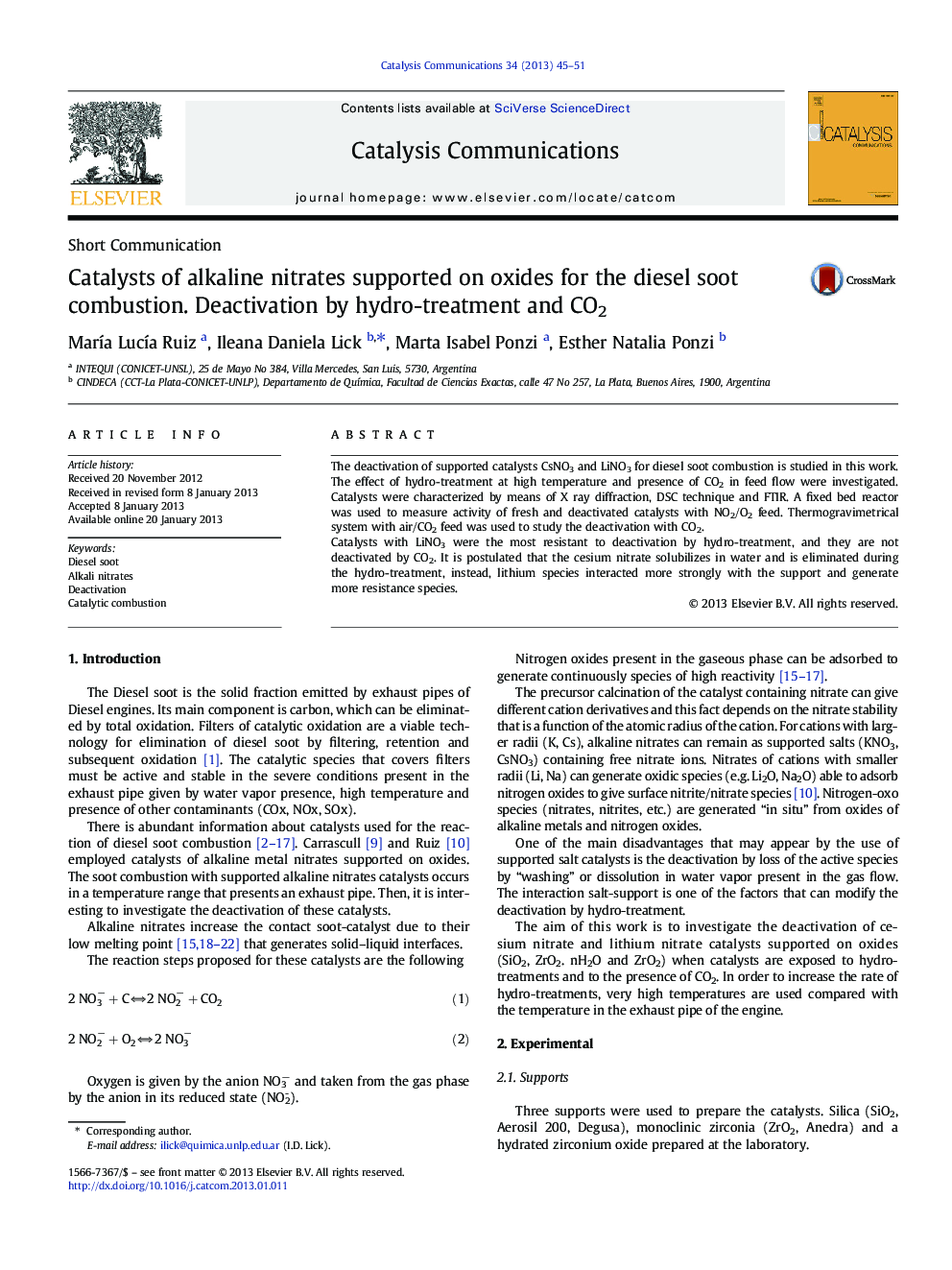| Article ID | Journal | Published Year | Pages | File Type |
|---|---|---|---|---|
| 51032 | Catalysis Communications | 2013 | 7 Pages |
The deactivation of supported catalysts CsNO3 and LiNO3 for diesel soot combustion is studied in this work. The effect of hydro-treatment at high temperature and presence of CO2 in feed flow were investigated. Catalysts were characterized by means of X ray diffraction, DSC technique and FTIR. A fixed bed reactor was used to measure activity of fresh and deactivated catalysts with NO2/O2 feed. Thermogravimetrical system with air/CO2 feed was used to study the deactivation with CO2.Catalysts with LiNO3 were the most resistant to deactivation by hydro-treatment, and they are not deactivated by CO2. It is postulated that the cesium nitrate solubilizes in water and is eliminated during the hydro-treatment, instead, lithium species interacted more strongly with the support and generate more resistance species.
► Catalysts presented in this work are efficient in the soot combustion with NO/O2. ► The CO2 presence in the feed does not modify substantially the activity of catalysts. ► The hydro-treatment process causes a great deactivation of cesium nitrate catalysts. ► Catalysts prepared from lithium nitrate show high resistance to hydro-treatment.
